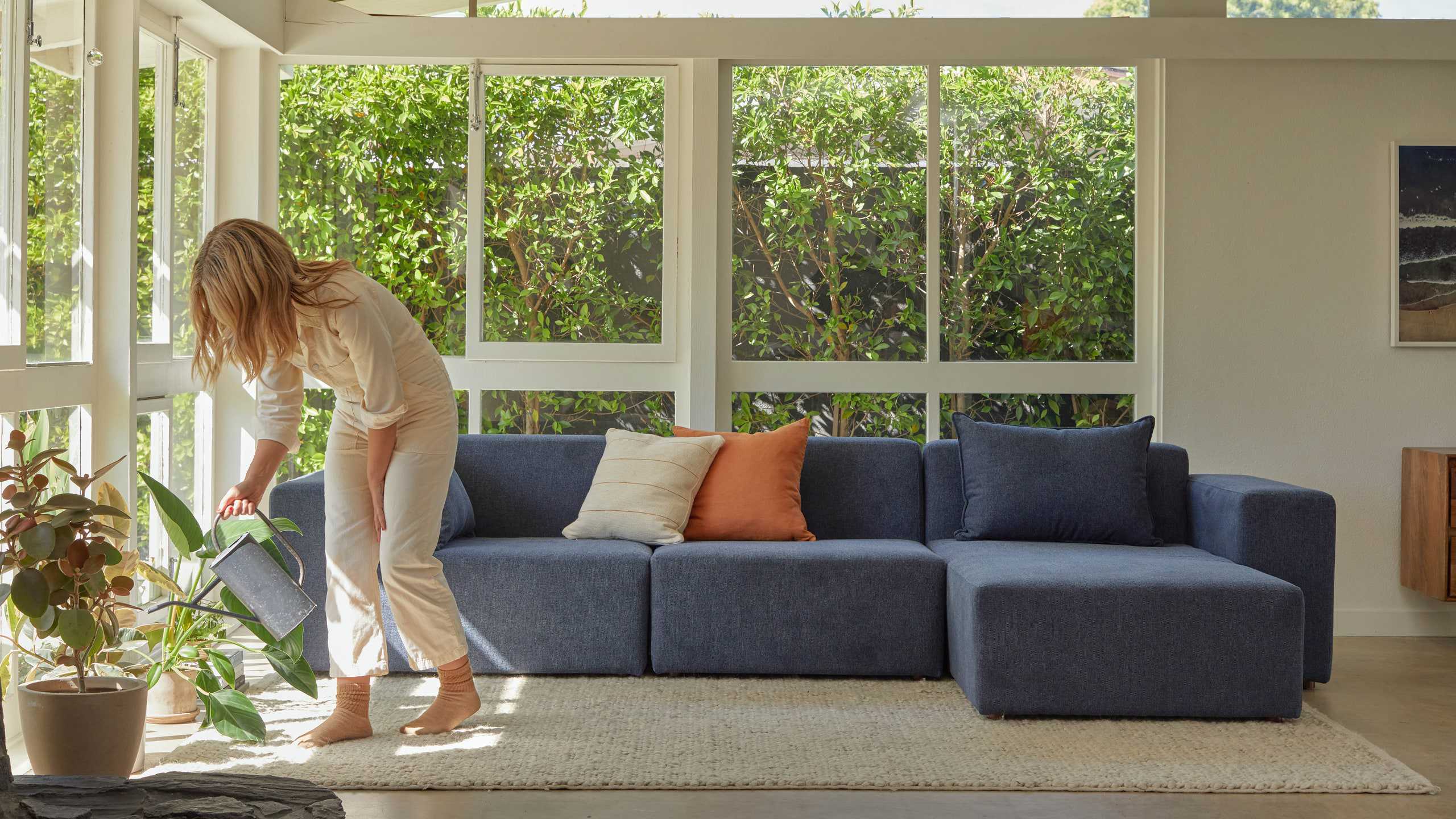Floyd Launches Circular Marketplace for More Sustainable Consumption of Their Products

Collected
All products featured on Architectural Digest are independently selected by our editors. However, when you get something through our retail links, we might earn an affiliate commission.
Every year, over 9 million tons of furniture makes its way to landfills across the United States-and only 40 tons are recycled. Floyd, an operating furniture company which makes sofas, beds, shelving, and tables, is attempting to lessen that gap.
Today the brand launched an online marketplace because of their returned and imperfect furniture, called Full Cycle, which is intended to make certain the furniture they create gets the longest life time possible. “Furniture products are big and use a whole lot of resources to create, so we have to create things that last and that persons can keep as time passes,” says Floyd cofounder Kyle Hoff. “We realize there are reasons people won’t keep or can’t keep our furniture, which means this is about how exactly do we make certain there’s a continued life for the products?”
To put it simply, if someone returns a product or a piece is available to be less than perfect at the warehouse, the company will sell it at a lower rate, up to 50% off.
This program is a larger-scale and digitized version of Floyd’s Shed Sale, where during the last three years, the business would sell products that had been quality-controlled out for a discount at their warehouse in Detroit. Not only does the program keep the products from being trashed, however the lower prices also make quality furniture more accessible. Often, Kyle says, those events had a line around the block.
A number of the items in the marketplace incorporate bed frames which may have a scratch on the panel. As the mattress would cover the blemish and the client would likely rarely see it, the business can’t really sell that as a fresh piece. However, those who don’t mind a small disclosed flaw will get the item for considerably cheaper.
“We hope this gets other furniture companies to have a similar stance and take responsibility for the life cycle of their products,” Kyle says. “We've more work to accomplish here and there’s too much to come in the near future, but I think for us, we feel like that is a step in the proper direction.
Every year, over 9 million tons of furniture makes its way to landfills across the United States-and only 40 tons are recycled. Floyd, an operating furniture company which makes sofas, beds, shelving, and tables, is attempting to lessen that gap.
Today the brand launched an online marketplace because of their returned and imperfect furniture, called Full Cycle, which is intended to make certain the furniture they create gets the longest life time possible. “Furniture products are big and use a whole lot of resources to create, so we have to create things that last and that persons can keep as time passes,” says Floyd cofounder Kyle Hoff. “We realize there are reasons people won’t keep or can’t keep our furniture, which means this is about how exactly do we make certain there’s a continued life for the products?”
To put it simply, if someone returns a product or a piece is available to be less than perfect at the warehouse, the company will sell it at a lower rate, up to 50% off.
This program is a larger-scale and digitized version of Floyd’s Shed Sale, where during the last three years, the business would sell products that had been quality-controlled out for a discount at their warehouse in Detroit. Not only does the program keep the products from being trashed, however the lower prices also make quality furniture more accessible. Often, Kyle says, those events had a line around the block.
A number of the items in the marketplace incorporate bed frames which may have a scratch on the panel. As the mattress would cover the blemish and the client would likely rarely see it, the business can’t really sell that as a fresh piece. However, those who don’t mind a small disclosed flaw will get the item for considerably cheaper.
“We hope this gets other furniture companies to have a similar stance and take responsibility for the life cycle of their products,” Kyle says. “We've more work to accomplish here and there’s too much to come in the near future, but I think for us, we feel like that is a step in the proper direction.
Source: https://www.architecturaldigest.com
Previous Story
- 3D Furniture Design Modeling of 3d Product Visualization...
- How These Italian Artisans and Furniture Makers Give...
- Growing demand designed for Italian leather merchandise spurs...
- Next-gen furniture rentals deliver curated design with sustainability
- Furniture Related Product Production Industry | BizVibe Adds...
- Natco Residence readies new merchandise for market week
- Lane putting money in facilities, staff, marketing and...
- Resources address demand … and provide more new...